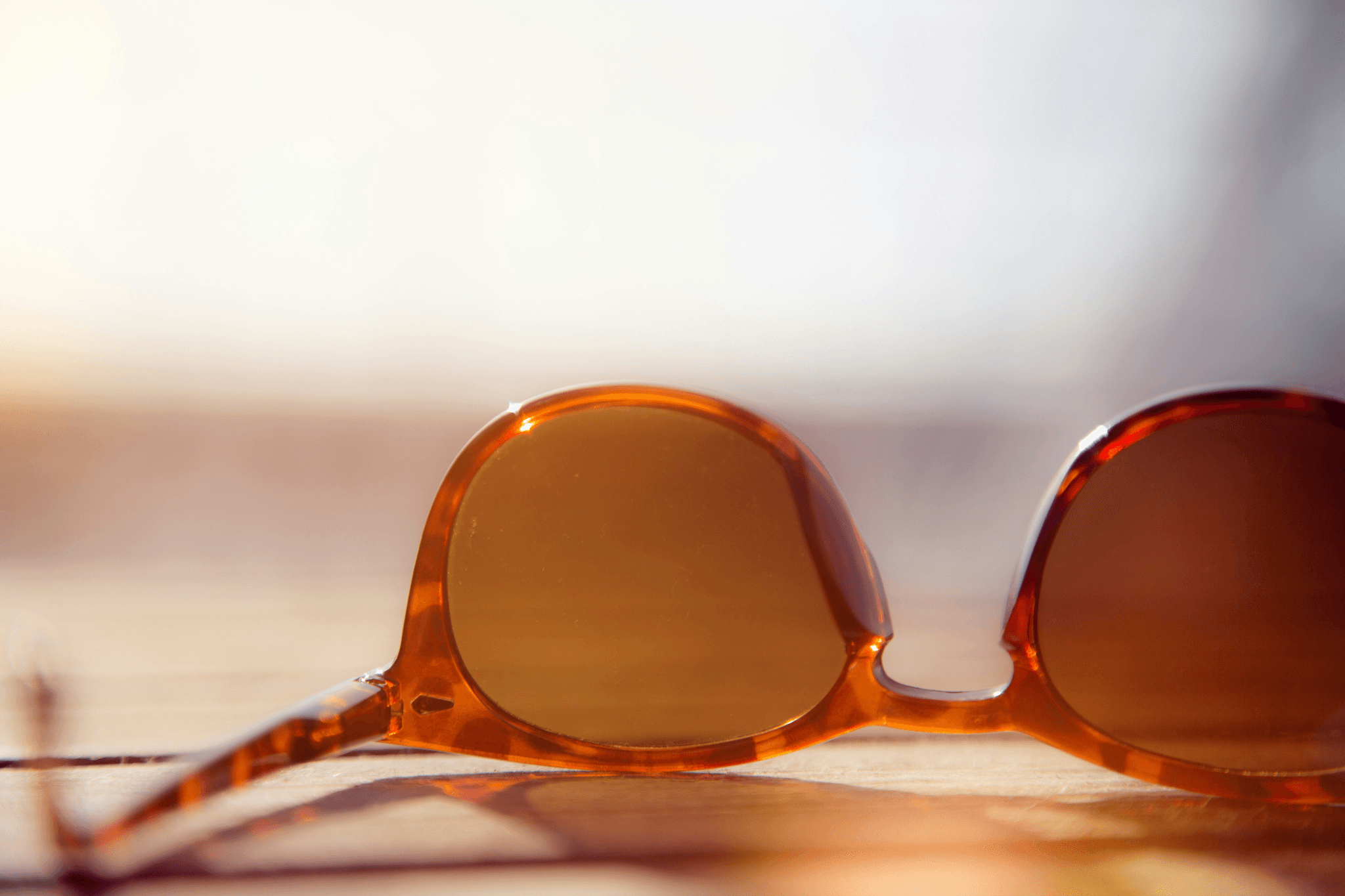Introduction

Understanding Polarized and Unpolarized Sunglasses
Polarized sunglasses feature a special coating that reduces glare from reflective surfaces like water, roads, and snow. On the other hand, unpolarized sunglasses simply darken your view without addressing glare directly. Understanding these differences is crucial in determining which type is best for specific activities and conditions.
The Science Behind Sunglass Functionality
The functionality of sunglasses hinges on their ability to filter light effectively. Polarized lenses contain a vertical filter that blocks horizontal light waves responsible for glare—perfect for outdoor enthusiasts! Meanwhile, unpolarized lenses provide basic UV protection but lack advanced features that enhance visual clarity in bright conditions.
Making the Right Choice for Your Eyes
Deciding between polarized vs non-polarized sunglasses involves considering various factors such as your daily activities and eye health needs. For instance, if you're frequently driving or engaging in water sports, you might wonder: Are polarized sunglasses better for your eyes? Conversely, there are situations where you might ask yourself: When should you not wear polarized sunglasses? By evaluating these aspects carefully, you can choose eyewear that not only looks great but also supports optimal eye comfort and safety.
What Are Polarized Sunglasses?

Polarized sunglasses have become a popular choice for those seeking enhanced visual comfort and clarity in bright conditions. They utilize a special filter that blocks intense reflected light, significantly reducing glare. This characteristic makes polarized sunglasses particularly effective for activities like driving, fishing, and skiing, where glare can be problematic.
Defining Polarization in Eyewear
At its core, polarization refers to the orientation of light waves. In polarized eyewear, a unique polarizing film is sandwiched between the lenses, allowing only vertically oriented light to pass through while blocking horizontally oriented light that causes glare. This technology is what distinguishes polarized vs unpolarized sunglasses; the latter do not have this filtering capability and may allow more distracting reflections.
Benefits of Polarized Sunglasses
One of the standout benefits of polarized sunglasses is their ability to reduce glare from surfaces like water or roads, leading to improved visual comfort and clarity. This reduction in glare can prevent eye strain during prolonged exposure to bright environments—making many wonder if polarized sunglasses are better for your eyes overall. Additionally, they often enhance color perception and contrast, making outdoor activities more enjoyable.
When Are Polarized Sunglasses Best?
Polarized sunglasses shine brightest when you’re engaging in activities where glare is prevalent—think sunny days on the water or long drives on open highways. However, there are times when you might want to think twice about wearing them; for instance, when viewing LCD screens or digital displays which can appear distorted through polarized lenses. In discussions about polarized vs non-polarized for driving specifically, it's essential to consider both scenarios: while they help reduce road glare effectively most of the time, certain situations may call for non-polarized options instead.
What Are Unpolarized Sunglasses?

Unpolarized sunglasses are a type of eyewear that lacks the special lens technology designed to filter out glare from reflective surfaces. This means they do not have the polarized coating that characterizes their counterparts, the polarized sunglasses. While they may seem less sophisticated, unpolarized sunglasses still serve a purpose and can be a great choice depending on your needs.
Exploring Non-Polarized Eyewear
Non-polarized eyewear is designed primarily to reduce brightness without addressing glare specifically. These lenses can provide adequate protection from harmful UV rays while allowing for a more natural visual experience, which some users prefer. For many casual wearers, unpolarized sunglasses offer sufficient comfort and eye protection without the added complexity of polarization.
Advantages of Unpolarized Sunglasses
One significant advantage of unpolarized sunglasses is their affordability; they usually come at a lower price point than their polarized counterparts. Additionally, some individuals find that non-polarized lenses allow for better visibility in certain situations, such as when viewing digital screens or LCD displays where polarization might distort images. Furthermore, unpolarized sunglasses don’t interfere with depth perception in specific scenarios—ideal for activities like skiing or snowboarding where you need to gauge distances accurately.
Situations Ideal for Non-Polarized Sunglasses
Unpolarized sunglasses are particularly suitable during overcast days or low-light conditions when glare isn't as much of an issue. They also work well for indoor environments where bright reflections aren’t prevalent, making them perfect for casual outings or driving in less sunny weather. Moreover, if you're engaging in activities like fishing or boating where you need to see below the water's surface clearly, you might want to avoid polarized lenses altogether since they can obscure underwater views.
In summary, when weighing polarized vs unpolarized sunglasses, consider your specific needs and circumstances before making a choice. Are polarised sunglasses better for your eyes? It depends on what you're doing! Remember that there are situations when you should not wear polarized sunglasses due to potential visual distortion or interference with electronic displays.
Polarized vs Non-Polarized for Driving

How Polarization Affects Road Visibility
The primary function of polarized lenses is to filter out horizontal light waves that create glare, which is especially beneficial when you're behind the wheel. This means that with polarized sunglasses, you can enjoy enhanced clarity and reduced eye strain while navigating bright conditions. Essentially, polarization enhances road visibility by allowing you to see clearly without the interference of blinding reflections.
Situations When Polarized Sunglasses Shine
There are specific scenarios where polarized sunglasses truly shine, making them an excellent choice for drivers. For instance, if you're driving on a sunny day with lots of water—like near lakes or oceans—polarized lenses will help you avoid those pesky reflections that can momentarily distract you. However, it's essential to know when should you not wear polarized sunglasses; for example, if you're looking at LCD screens (like GPS devices), they might make it difficult to see the display clearly.
Are Polarized Sunglasses Better for Driving?
So, which is better: polarized or non-polarized sunglasses for driving? The answer often leans towards polarized options due to their glare-reducing benefits and improved visual comfort during long drives in bright conditions. However, there are some downsides to polarized sunglasses; they may not be ideal in situations where depth perception is crucial—such as skiing or certain sports—because they can alter how you perceive shadows and contours.
In summary, while both types have their merits in different contexts, when it comes down to polarized vs non-polarized for driving, polarized glasses generally take the lead due to their superior glare reduction capabilities.
UV Protection: A Key Factor

Polarized vs Unpolarized Sunglasses UV Protection
Polarized sunglasses are designed to reduce glare from surfaces like water or roads, but they also come with an added layer of UV protection in many cases. This means that while you're enjoying a clearer view with reduced brightness, you’re also shielding your eyes from harmful ultraviolet rays. However, not all polarized lenses are created equal; some may lack adequate UV protection, making it essential to check for this feature when considering polarized vs non-polarized sunglasses.
On the other hand, unpolarized sunglasses can also provide solid UV protection if they are made with quality materials and coatings. They often focus more on reducing brightness rather than eliminating glare, which means they might not be as effective in certain situations like driving or water sports. When comparing polarized vs non-polarized for driving or outdoor activities, it's important to ensure that whichever option you choose has sufficient UV defense.
The Importance of UV Safety for Eye Health
UV safety plays a vital role in maintaining long-term eye health and preventing conditions such as cataracts and macular degeneration. The sun emits two types of harmful rays—UVA and UVB—that can penetrate your eyes and cause damage over time. Whether you opt for polarized or unpolarized sunglasses, prioritizing lenses that block 100% of UVA and UVB rays should be a top priority.
When considering whether polarised sunglasses are better for your eyes, remember that effective UV protection is one of their main benefits. However, this doesn't mean that unpolarized options should be dismissed entirely; high-quality non-polarized glasses can still offer excellent eye safety if they meet the necessary standards for blocking harmful rays. Ultimately, investing in a pair of shades—whether polarized or unpolarized—that provides solid UV coverage will contribute positively to your overall eye health.
Choosing the Right Sunglasses for UV Defense
Choosing the right sunglasses is about more than just style; it’s about ensuring you’re adequately protected from harmful rays while enjoying your favorite outdoor activities! Look for labels indicating 100% UVA/UVB protection when shopping around; this applies equally whether you're leaning towards polarized vs unpolarized options.
If you're wondering when should you not wear polarized sunglasses? Consider scenarios like looking at LCD screens where polarization may distort visibility—this could lead to frustration rather than comfort! Ultimately, weigh the pros and cons before deciding between polarized vs non-polarized sunglasses based on your lifestyle needs and preferences.
In conclusion, whether you're opting for stylish frames from Daposi—where we believe in elevating eyewear choices—or simply seeking practical sun protection on a sunny day out, knowing how to choose based on UV safety is key! Bring Your Vision to Life: Beyond Eyewear offers innovative designs tailored just for you!
Are Polarised Sunglasses Better for Your Eyes?

Benefits of Polarization for Eye Comfort
Polarized sunglasses work by filtering out horizontal light waves that create glare, making them a popular choice for anyone who spends time outdoors. This reduction in glare not only enhances comfort but also minimizes squinting, allowing your eyes to relax and reducing strain. For those asking which is better, polarized or non-polarized sunglasses, the answer often leans toward polarized options when it comes to prolonged wear in bright conditions.
However, it's essential to note that there are situations when you should not wear polarized sunglasses. For instance, some digital screens—like those on dashboards or certain devices—can appear distorted through polarizing lenses. So while they offer substantial benefits for eye comfort and clarity outdoors, it’s wise to consider where and how you’ll be using them.
Comparing Visual Clarity and Fatigue
In the ongoing debate of polarized vs unpolarized sunglasses, visual clarity plays a pivotal role in determining which option is superior. Polarized lenses excel at providing clearer vision by minimizing reflections from surfaces like water or roads—perfect for driving or outdoor sports. This clarity can help reduce visual fatigue over time; less strain means more enjoyment during activities like fishing or skiing.
On the flip side, unpolarized sunglasses may be preferable in specific scenarios where glare reduction is unnecessary. For example, if you're indoors or in low-light situations, non-polarized options can provide adequate protection without altering your perception of light sources around you. Ultimately, understanding these differences helps clarify whether polarized vs non-polarized sunglasses are right for your lifestyle.
The Impact of Glare Reduction on Eye Health
The impact of glare reduction on eye health cannot be overstated when considering whether polarized vs unpolarized sunglasses are better suited for you. Glare can lead to discomfort and even temporary vision impairment; thus, wearing polarized lenses offers a protective barrier against these adverse effects. By effectively reducing glare from reflective surfaces like water or asphalt, these lenses contribute significantly to overall eye health and comfort.
However, some may wonder if there’s a downside to polarized sunglasses—such as potential distortion when viewing certain LCD screens—and it's true that this can be an inconvenience at times. Yet despite this minor drawback, the advantages they offer far outweigh any negatives for most outdoor enthusiasts looking for UV protection as well as visual enhancement during their adventures.
In summary, while both types have their place under the sun (and shade), those concerned about long-term eye health should weigh their options carefully before deciding between polarized vs non-polarized sunglasses.
At Daposi: Bringing Your Vision to Life! 🌟 Whether you're looking for custom designs that stand out or seeking innovative solutions tailored just for you—we're here every step of the way! With our commitment to sustainability and unique design ideas paired with professional production knowledge—let us help transform your creative visions into reality! 💡🌿
Conclusion

In the world of eyewear, understanding the differences between polarized vs unpolarized sunglasses can significantly impact your visual experience and overall eye health. Each type has its unique advantages and ideal use scenarios, making it crucial to consider your lifestyle and specific needs when choosing between them. Ultimately, the question of Which is better: polarized or non-polarized sunglasses? depends on various factors such as activities, environments, and personal preferences.
Key Takeaways on Polarized vs Unpolarized Sunglasses
When comparing polarized vs unpolarized sunglasses, it's essential to recognize that polarized lenses excel in reducing glare from reflective surfaces, which can enhance comfort and visibility in bright conditions. However, unpolarized sunglasses still provide adequate protection against UV rays and may be preferable in certain situations where glare reduction could hinder visibility—like viewing digital screens or certain water sports. As you ponder Are polarised sunglasses better for your eyes?, remember that while they offer significant benefits for glare reduction, they might not be necessary for every activity.
Finding the Right Sunglasses for Your Lifestyle
Choosing between polarized vs non-polarized sunglasses is about aligning your eyewear with your daily activities and preferences. If you're frequently outdoors or driving in bright sunlight, investing in polarized sunglasses can dramatically improve visual clarity and comfort; however, if you're often indoors or using screens outdoors, unpolarized options might serve you better without any downsides associated with polarization. So ask yourself: When should you not wear polarized sunglasses? If you find yourself needing clearer vision through reflections or screens, sticking with unpolarized might just be the way to go.
Daposi: Elevating Your Eyewear Choices
At Daposi, we believe that eyewear should reflect individuality while also prioritizing functionality—bringing your vision to life! Our commitment is not just about aesthetics but also about ensuring that each piece enhances your lifestyle choices effectively. Whether you're interested in customized designs or eco-friendly materials that resonate with modern sustainability trends, our team is here to transform those ideas into reality while ensuring quality craftsmanship shines through every pair of glasses we create! 🌟💡
